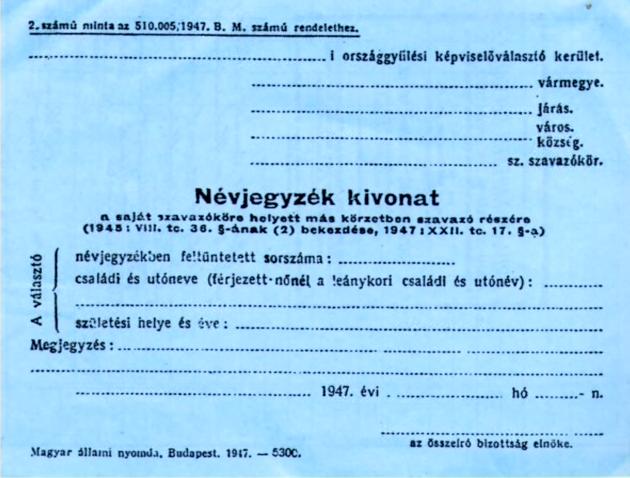Election frauds and abuses committed since the regime change can be linked to the left. In 2002, for example, when it was really needed, the Medgyessy government refused to recount the votes, and in the famous Baja video case, the socialists falsified evidence in order to accuse Fidesz of fraud. Recently, it was revealed about Zoltán Vajda, the candidate of the Márki-Zay movement, that he entered the register of individual representative candidates in the last parliamentary elections with false signatures. In the past few days, Péter Márki-Zay himself encouraged his followers to voxturism.
Accuse your opponent of what you want to do yourself, says the old left-wing tradition, and it is no different with election fraud. Now, when NGOs linked to George Soros invited the OSCE delegation to the country to observe the elections, it is worth recalling that the frauds and abuses committed since the regime change can often be linked to the left.
The original sin can be called the 2002 election, in which, despite all previous forecasts, the socialists led by Péter Medgyessy won with a minimal majority.
In order to dispel the doubts expressed by many, Fidesz and Fidelitas launched a popular initiative and initiated a change in the law in order to preserve and recount the ballots.
However, the majority of the MSZP-SZDSZ ruling party in the parliament rejected twice the inclusion of Fidesz's proposal in the agenda, so in the end the votes could not be recounted, instead they were crushed.

Source: iratmeggemmssites.co.hu/illustráció
One of the left's most notorious election frauds was the Baja video case in 2013. At that time, Hvg.hu came up with a recording, which was published under the title Here is the proof of fraud: they voted for money and firewood in Bajan.
In the video, an intermediary handed two hundred thousand forints to some local men and promised them additional money and firewood if they and their family members went to vote in the by-election in Baja. Attila Mesterházy, the president of the MSZP, announced at a press conference that Fidesz had committed electoral fraud, referring to the recording. The MSZP could not be happy for long, because on October 21, the police announced that the recording in question was fake, that the actors in it played out an organized situation after the repeated election of municipal representatives. The police interrogated one of the actors, Gusztáv Kőrös, a representative of the Gypsy minority in Solt, who was otherwise a member of the DK led by Ferenc Gyurcsány until the scandal broke out. The man said that the customer of the film was György Király, who is the vice president of the sports department of the socialists. Király was also questioned by the police, but he denied that he ordered the recording. Balázs Déri, the communications director of the MSZP, and Gábor Gavra, the editor-in-chief of Hvg.hu, also left their posts after the scandal.
Péter Márki-Zay recently encouraged election fraud, specifically voxturism, in London when he asked Hungarians living abroad without a residential address: if they can,
register in a vacillating district, because based on the 2018 results, up to three mandates this year may depend on foreign votes.
Known: According to Section 350 of the Criminal Code, it is considered a form of committing a crime against the order of elections if someone votes without authorization and with a fictitious address. If someone encourages the commission of the relevant crime punishable by imprisonment of up to three years, it is considered an incitement according to § 14.
One of the classic forms of election tricks used by the left is chain voting.
The essence of this is that the first voter just throws an empty envelope into the ballot box and takes the blank ballot out of the polling station, where it is filled in by the bribing party. The second bribed person takes the already filled-in ballot with him and throws it into the ballot box, and also takes out his own ballot, and the chain continues like this. Chain voting is a good solution for the bribe taker, because this way he can make sure that the voter is really placed in the place he wants on the ballot. In March 2006, HírTV's Célpont program reported that the socialists had cheated in a similar way in Nagykáta in Pest County in 2002, and were preparing for the same in the 2006 elections. In the program, a socialist who oversees the party's internal affairs claimed that those who voted this way were usually given HUF 2,000.

Blue card! The communist iron fist/Source Wikipedia
2022Plusz: And speaking of traditions, let's not forget the historical context either! In 1947, blue-card elections were held. People could vote far away from their place of residence with the provisional voter registration certificate printed on a blue background: many of the communists traveling the country by truck, train, foot or bicycle voted in 15-20 places in the same election. The specially printed blue cards for this purpose were made available to them by the Hungarian Communist Party - the legal and ideological predecessor of today's left. The researchers still don't know how many such votes could have gone into the ballot boxes, they estimate their number at 60-120 thousand.
Caution! It could easily be that the comrades are preparing to travel again on April 3!
Source and full article: Magyar Nemzet/Ádám Bákonyi
Featured image: demokrata.hu













